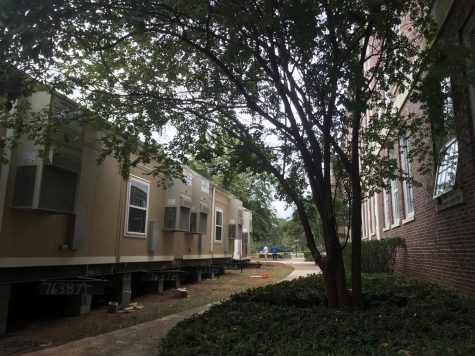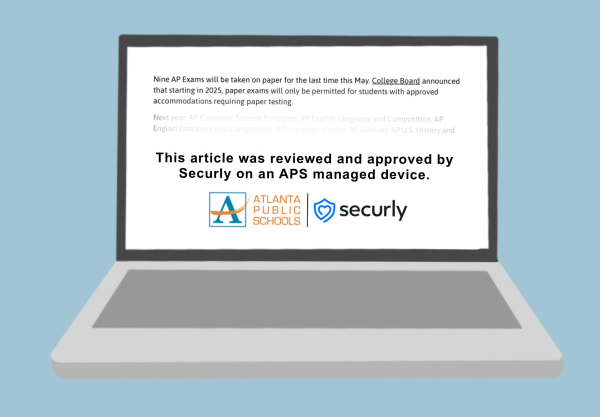Mandatory prep sessions add to AP workload
Mandatory NMSI Saturday study sessions add excess stress to students that already have an intense workload.
December 17, 2019
Dear Editors,
Recently, at the strong suggestion of the assistant principals, Grady’s Advanced Placement teachers decided to make National Math and Science Initiative (NMSI) sessions a requirement for all of their students. The rationale was that low attendance could damage Grady’s relationship with NMSI, and by requiring all students to attend teachers would be setting students up to succeed on their AP exams in May. However, the new NMSI requirement takes away students’ agency and fails to acknowledge prior commitments. Rather than requiring every session, teachers should only require attendance at one so that students can more easily fit NMSI into their busy schedule.
Students shouldn’t be forced to attend Saturday sessions for much the same reasons that they shouldn’t be involuntarily enrolled in AP classes. Decision-making is part of growing up, and by taking this decision from students the administration sets them up for failure in the long run. No college professor will ever make office hours a mandatory event; students need to learn to seek their own success. It’s wonderful that teachers want to see students thrive in their APs, but spoon-fed achievement benefits nobody in the long run.
Required NMSI sessions are also extremely inconvenient and inaccessible to some students. AP students in particular often have long-term commitments on Saturdays. Some work long shifts on Saturday mornings; others finish college applications, rehearse for drama, or compete in tournaments. One session might not sound like a lot to ask, but depending on one’s schedule NMSI adds up. Three of my AP classes have NMSI requirements, which means I’ll be required to attend seven more sessions this year. While the school isn’t responsible for babysitting Grady’s chronic overschedulers, it’s unfair to make such high demands on students’ free time. Teachers have tried to ease the burden on over-scheduled students by allowing those who miss sessions to make up the work outside of class for a grade, but this solution still adds to students’ workloads and doesn’t compensate for the active instruction they miss. NMSI is also downright unrealistic for students without transportation or who work to support their families. Not everybody can get to Grady when school buses aren’t running; this requirement hurts low-income students, who already enroll in AP classes at lower rates than their wealthier peers. Those without transportation might not have time to complete extra work for their AP classes to make up the sessions they can’t attend.
Rather than requiring attendance at all NMSI sessions, teachers should lower the requirement to one session of the student’s choice for each subject. This will allow students to attend NMSI based on their schedule while still exposing them to content. It will also promote agency; students who value NMSI will be more likely to return of their own volition, which will prepare them to make good decisions about study time in college. Students with transportation issues or work obligations won’t find themselves buried in make up packets and will have a better chance at arranging transportation if they can choose a session in advance and at their convenience.
NMSI is a wonderful program, and I thoroughly appreciate the patience and expertise that their staff brings to Saturday sessions. But students who are in AP classes are equipped to decide for themselves whether NMSI is the best use of their time. For students with work and extracurricular commitments, it may not be. A more flexible NMSI schedule will keep busy students sane, teach responsibility, and lessen the pressure on students who rely on Atlanta Public Schools for transportation.
Maura O’Sullivan
Junior

















